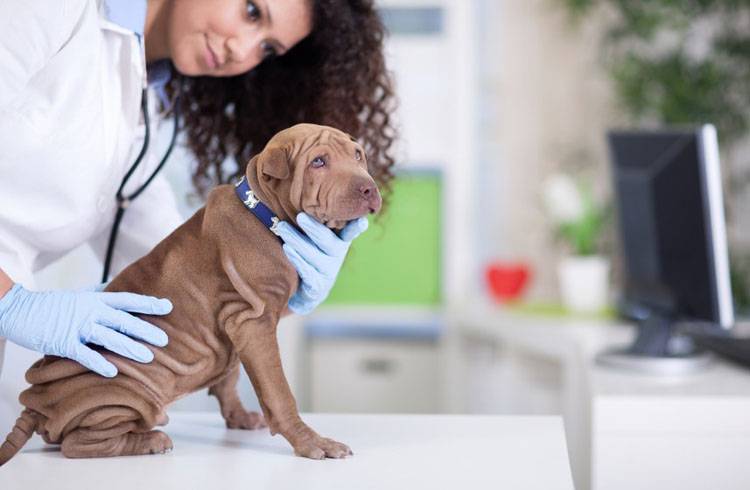Canine Thyroid Disease
Hypothyroidism is one of the most common hormone deficiencies in dogs, and yet one of the most overlooked. When dogs suffer from Hypothyroidism, their thyroid gland isn’t producing enough of the thyroid hormone. The causes of this condition can vary.
The onset of Hypothyroidism may be from a naturally slowing down gland due to the dog’s age, a congenital problem or, in some cases, a tumor on the thyroid gland.
What is the thyroid gland?
The thyroid gland is located on each side of the trachea (or windpipe). Its major function is to control the body’s metabolism by circulating hormones in a regulated fashion. It secretes two hormones, which are T3 (triiodothyronine) and T4 (thyroxine). T3 is considered the active form of the hormone while T4 is what circulates through the bloodstream, but is not considered to be active.
Hypothyroidism is most common in medium to large breed dogs, such as the Doberman Pinscher and Golden Retriever, with the age of onset between four to 10 years. It seems to be rare in small or toy breeds. Although some small breeds, such as the Miniature Schnauzer and Dachshund, are predisposed to this condition.
Symptoms of Hypothyroidism
Since this condition affects the metabolism, warning signs dog owners can look for include weight gain and skin conditions. The Veterinary Information Network has noted that 88 percent of cases had some sort of skin issue and 40 percent had hair loss.
Classically, the hair loss manifests around the tail, giving a rat tail appearance. The percentage of overweight animals is about 49, and 48 percent of owners found their dogs had become very lazy or listless. If you suspect your dog may have this issue, it’s important you contact a veterinary assistant for testing.
RELATED: Annual Veterinary Exam for Older Pets
How to Test for Hypothyroidism
Testing for hypothyroidism is as simple as drawing a bit of blood and sending a blood panel to the laboratory. There are several types of dog thyroid testing. Depending on your dog’s condition, your vet assistant may recommend more than one test.
Hypothyroidism Treatment
If your dog has hypothyroidism, he can be treated by taking a thyroid supplement orally twice a day. This treatment will be a necessity for your dog for the remainder of the pet’s life.
Upon initial treatment, your veterinary assistant will make a follow-up appointment with you to have your dog’s thyroid levels checked again to ensure thyroid levels are within the normal range. High thyroid levels may lead to further complications involving the heart or kidneys. If the levels are too low, then that means the medication wasn’t sufficient.
If everything has been stabilized with your canine’s medication, you should still have your dog’s levels checked annually. Many times, your vet assistant will request you bring your dog into the clinic at a specific time, a number of hours after you have administered the medication, for post-pill testing.
Remember, it may be frustrating to tailor the dose or frequency of the medication in the beginning, but once your veterinarian has it perfect, it is smooth sailing for a happy and healthy pet!
You may also like: Spring Dog Health Tips





